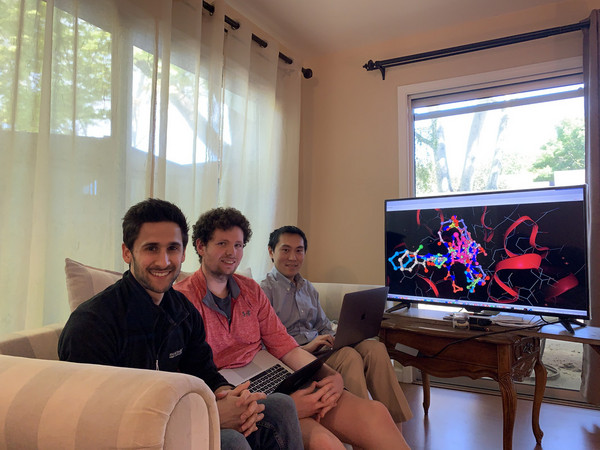How To Be Ready For Future Pandemics?
What do antibiotic-resistant bacteria (“superbugs”) and coronaviruses have in common? They both can kill lots of people globally, and they both have been commercially unattractive targets for the pharma business for too long.
We are losing a battle against “invisible enemies” (so far)
The pharmaceutical business is naturally driven by market forces. Since biology is extremely complex, drug discovery may cost up to $2.6 Billion in R&D investments. Hence, in order for a business to exist, the market and demand for a drug have to be substantial.
While this commercial approach is working in therapeutic areas with large patient populations, long-term treatment courses and high medication prices (oncology, metabolic diseases, etc), it is clearly failing when it comes to treating occasional bacterial infections, or irregular but severe viral outbreaks, such as the ongoing COVID19 pandemics.
Take antibiotics, for example: despite some groundbreaking research inventions in the area, they appear to be a hard case when it comes to business, illustrated by a wave of startup bankruptcies (e.g. Aradigm, Achaogen), and a stampede of big pharma companies from the antibiotics market. This is happening during the time when antibiotics resistance is a looming global threat already killing more than 750,000 people every year, and projected to cause up to 10 million deaths each year by 2050 -- if urgent measured are not taken.
A similar lack of market incentives left all of us unprepared for the present COVID19 crisis. In 2002 and 2003 we had a warning sign of it when the SARS-CoV pandemic paralyzed the Far East. However, discovery efforts into the virus mostly halted after the end of the crisis and did not lead to any marketed drugs.

Image credit: www.mctic.gov.br
In 2012 another coronavirus caused Middle East Respiratory Syndrome (MERS) outbreak -- first reported in Saudi Arabia and eventually having spread to 27 countries. Lack of funding, again, left coronavirus drug hunters will little incentives to continue efforts. Arguably, the COVID-19 pandemic might have been avoided if those efforts against coronaviruses had persisted.
Right now the global biotech race is on to design cures to curb COVID-19 crisis -- the immediate market incentives are strong, everybody needs a cure right now. But in spite of the pharma companies demonstrating a record-breaking speed of discovery and collaboration these days, it is a late reaction to pandemics and the situation is pretty much out of control.
The ongoing COVID19 crisis in healthcare exposed the inability of the current profit-driven model of the pharmaceutical industry to proactively prepare for such pandemics. A new industry model, with relevant incentives, is urgently needed in the area of infectious diseases to prepare for future viral outbreaks, and to avoid the “post-antibiotics apocalypse” -- a model where society’s investment in health would be decoupled from commercial interests.
COVID Moonshot -- a bold attempt to change the paradigm
One notable effort in the direction of non-profit open-science drug discovery is the COVID Moonshot project, organized by an international consortium of scientists from academia, biotechs, contract research organizations (CROs) and pharma, all working pro bono or via the crowdfunding (https://www.gofundme.com/f/covidmoonshot), philanthropy and bootstrapped grants. The aim of the project is to rapidly develop easily manufacturable antiviral drugs that can inhibit the SARS-CoV-2 main protease, which is believed to be an Achilles heel of the coronavirus.

In January, researchers at Shanghai Tech University identified the crystallographic structure of the Sars-CoV-2 main protease using a synchrotron radiation facility. Later they collaborated with the Diamond Light Source in Oxfordshire, UK (another synchrotron radiation facility), and The Weizmann Institute in Israel to conduct a large crystallographic and mass-spectrometry fragment screen, which resulted in around 80 protein-ligand crystal structures.
The obtained data inspired the team at PostEra, a US-UK based artificial intelligence (AI) medicinal chemistry startup, to initiate a cross-border open-science collaboration and launch a crowdsourced drug design initiative. “We’ve now received over 7500 submissions from 350 contributors,” says Aaron Morris, CEO and Co-founder of PostEra. “For COVID Moonshot the open-science model means we get to tap into the vast array of scientific expertise from people all around the world while also ensuring that IP constraints do not slow down the progress of the project. Additionally, this means we don’t have high R&D costs to recover from the sale of any resulting antiviral and so we hope to produce a cure that is cheap and accessible.”
PostEra and Memorial Sloan Kettering Cancer Center spearheaded computational methods, including artificial intelligence, to prioritize molecules based on factors like ease of synthesis and possible toxicity and chose only the most promising candidates.
All prioritized molecules are synthesized by Enamine in Ukraine, Sai Life Sciences (SAI) in India, and WuXi in China. Dr. Tatiana Matviyuk, Principal Scientist at Enamine, says the company produced about 500 molecules prioritized from design submissions projects at discounted rates and also cut the price for automated parallel synthesis in half for the project’s needs. “We also play a role of a logistical hub, receiving synthesized compounds from SAI and WuXi and formatting them in convenient formats for submission to the screening centers in Weizmann Institute of Science (WIZ, Israel), Diamond, XChem group and Oxford University (SGC Oxford). We also perform part of ADME Tox screening here at Enamine”.
Currently, the team at COVID Moonshot identified a number of active hits, including promising submicromolar inhibitors. Hit follow-up work is now in progress.
“We’ve received $20k from our GoFundMe and $290k in grants so far and continue to apply for funding from relevant scientific bodies,” says Aaron Morris. “Our aim is to fund all the work needed to complete all preclinical studies. We then intend to engage governmental organizations or non-profits to take the drug through necessary human trials.”
A wider context for healthcare
An important research initiative in itself, COVID Moonshop project may have a wider impact on healthcare by serving as an alternative drug discovery paradigm in commercially unattractive areas, like antibiotics
“We’ve spoken with leading figures in the Antibiotic resistance fight in the UK as to whether such open science approaches, powered by the COVID Moonshot platform, could be of value to incentivizing research into these ideas. We realised that though certainly open-source approaches remove barriers of commercial interest it does produce a new set of challenges -- how to prioritize ideas? How to share data in an accessible way? How to organise the various computational, experimental and research teams? We realised that a committed community, novel technology and a well organised logistical workflow are key to making open-science initiatives work. We also welcome anyone working in the field of Antibiotics or Antivirals who would like to benefit from the type of infrastructure we have built for COVID Moonshot to get in touch and see if we can help your program by leveraging an open-source approach.
Please, contribute to raising awareness about this pressing topic by sharing this post in social media or forwarding it to your peers whom it might be relevant. Also, reach out to PostEra team if you have ways to support COVID MoonShot.
Topics: Emerging Technologies
